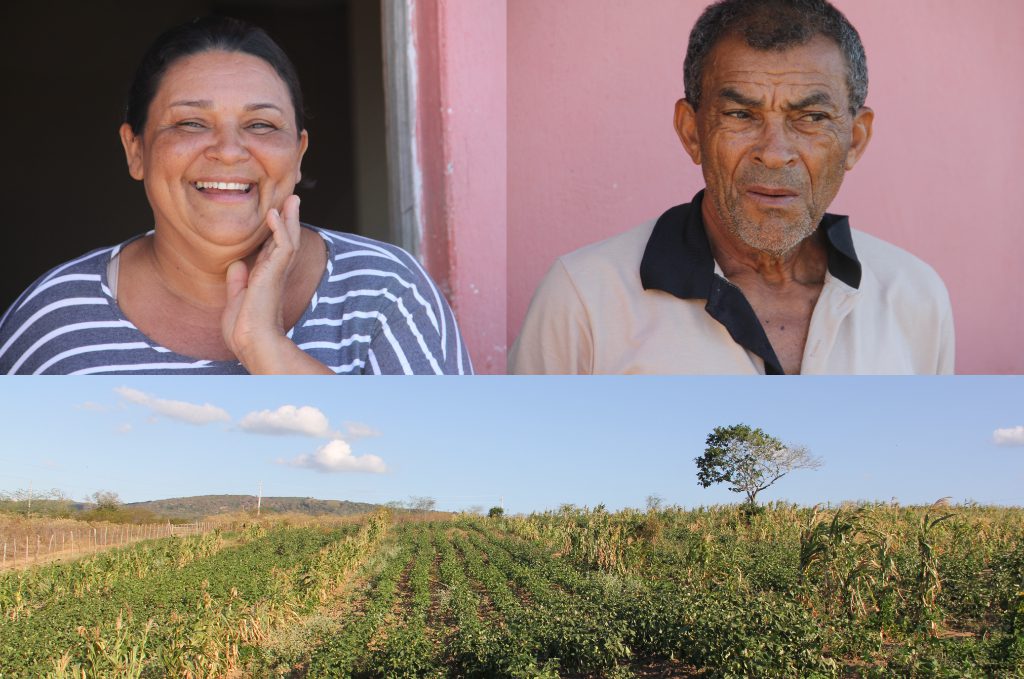
The WFP Centre of Excellence against Hunger held a technical visit to Paraíba state, in the Northeast of Brazil, on 26 and 27 July. The goal was to identify good practices to ensure access to markets for small-scale cotton producers. Accompanied by a technical team from the Brazilian Cooperation Agency (ABC), the WFP Centre’s team visited the Algodão Paraíba Project, an initiative that fosters cotton production associated to food crops, carried out in the Brazilian semi-arid region. The products are sold in local and regional markets, including the school feeding programme.
The mission took place within the scope of the Beyond Cotton project, an initiative of the WFP Centre of Excellence and ABC in partnership with the Brazilian Cotton Institute. The project will support cotton producers and public institutions in four African countries to commercialize cotton by-products such as oil and cake and associated crops, such as corn, sorghum, and beans. The good practices identified in Brazil will be an inspiration for Benin, Mozambique, Kenya and Tanzania to develop their own solutions for the commercialization of smallholder farmers’ produce.

The Algodão Paraíba Project was one of the first experiences identified in Brazil with the potential to serve as a subsidy to the South-South cooperation activities of the Beyond Cotton Project. The project is carried out by the Technical Assistance and Rural Extension Company in Paraíba (EMATER/PB), in partnership with the Brazilian Agricultural Research Company (Embrapa), a cotton company called Norfil and several public and private actors.
The main objective of Algodão Paraíba is to promote the participation of smallholder farmers in the productive chain of organic cotton. To do so, it offers technical assistance to improve farmers’ productivity rates and lower their costs. In addition, it promotes integration with other productive chains and supports farmers to commercialize the food produced in consortium with cotton for the school feeding programme.
During the mission, the technical team of the WFP Centre and ABC identified the good practices of technical assistance and rural extension applied in Algodão Paraíba. They also mapped the role played by each stakeholder in the development of the cotton production chain, such as cooperatives, companies and public institutions. They also identified good agricultural practices applied to cotton production, the commercial potential of cotton and associated crops in different markets, and mechanisms to provide technical support to smallholder farmers.




